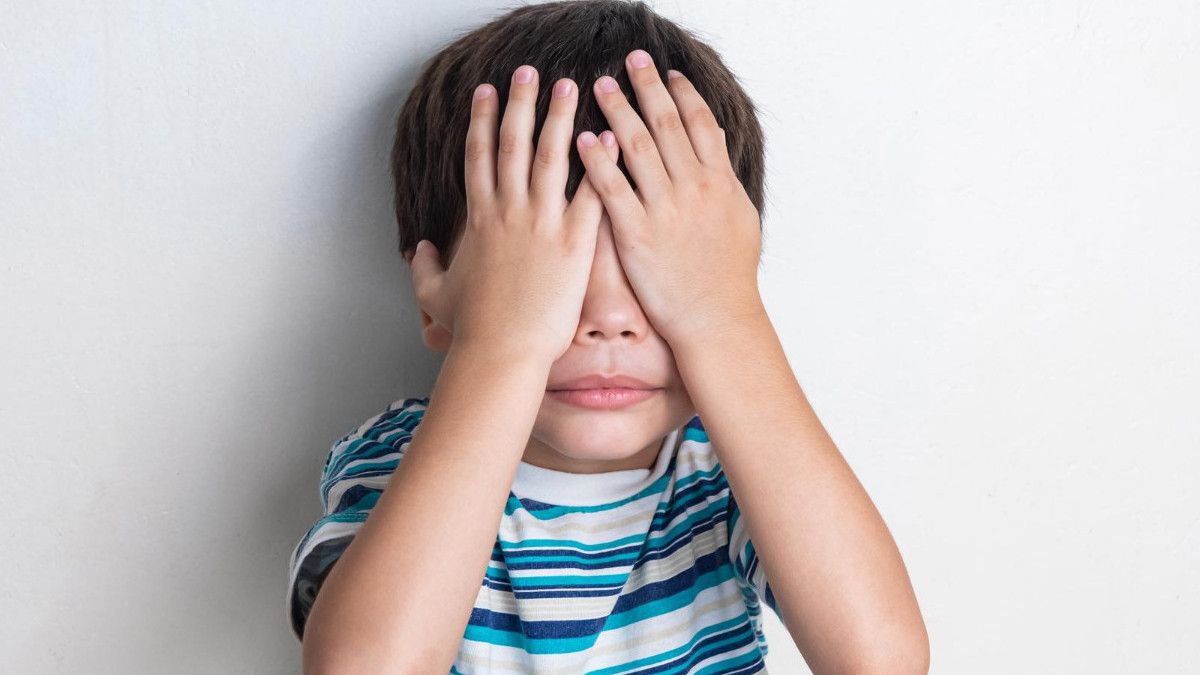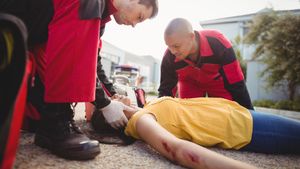YOGYAKARTA Panic attacks are episodes of severe anxiety suddenly and unexpectedly. The trigger is not so clear that it is often worrying if experienced by children. For those who have children and have experienced them, they may need to learn to overcome them instantly.
Panic attacks have different psychological and physical symptoms in each person. If experienced by children, it may feel as if they have lost control or were trapped, or were unable to escape from certain situations. Panic attacks can be accompanied by physical symptoms, including dizziness, almost fainting, uncomfortable stomach, chest pain and shortness of breath, heart palpitation, fluctuating body temperature, and hyperventilation.
In many cases, panic attacks only last a few minutes. But the symptoms are sometimes annoying because they are often felt like they have a heart attack. Research reported by the Priory Group, Wednesday, January 24, a number of factors may potentially trigger children to experience panic attacks. Among them such as hereditary/genetic factors, phobias, mental health conditions such as compulsive disorder (OCD) or post-traumatic stress disorder (PTSD), low self, and certain substances that trigger panic attacks including caffeine. For parents, it is important to know the steps that need to be taken when children experience the following panic attacks.
If your child experiences a panic attack, they will most likely feel out of control. This is why it's important to stay in control as long as a panic attack occurs. Try to calm down, and speak in a soft and calming voice. Tell the child to take a deep breath and make sure that panic is over.
Explain to the child that a panic attack causes his breathing to become faster. This will make him dizzy, weak, and in chest pain. Teach them how to slow down their breathing. Because with car aini can help reduce physical symptoms. You do this, inhale through a matter of three seconds, hold your breath two seconds, and exhale thoroughly.
Panic attacks can be scary. Children may be worried people will laugh at them. By teaching children some facts about panic attacks, you can help dispel some of these concerns. Explain to them that panic attacks are common and harmless even though they feel uncomfortable.
Convince them that panic attacks only last briefly and will always end. It's also important to let the child know that most likely no one is closest to him when a panic attack relapses. Explain that they need to be calm and train themselves to cope with breathing exercises.
If you deal with panic attacks in response to certain situations, it's important to encourage them to face their fears. For example, if you get panicked while in the car, explain the steps to deal with it carefully. Like sitting in the car while parking. This will help your child realize that his fear is irrational. In addition, give a lot of praise and encouragement during the process.
The way your child thinks about various things can have an impact on the level of panic. Many of them are out of control. Therefore, it is important to help children realize that this is just thinking and not fact. Then, the challenge of children to fight negative thoughts is often based on erroneous assumptions.
SEE ALSO:
Most likely children will have a lot of negative thoughts during a panic attack. You can help shift their focus from this thought by encouraging them to concentrate on other things. Ideally concentrate on something calming or entertaining them. For example playing favorite toys, watching fun photos, or playing with pets.
It is important to tell your child that they don't need to suffer alone. Be sure there will always be someone who helps and listens to them. Tell your child's teacher about the panic attacks they have experienced. Let them intervene if the child experiences a panic attack at school.
In addition to the seven steps above that parents need to do when their child has a panic attack, it is important to get mental health assistance, therapists, or psychiatrists.
The English, Chinese, Japanese, Arabic, and French versions are automatically generated by the AI. So there may still be inaccuracies in translating, please always see Indonesian as our main language. (system supported by DigitalSiber.id)


















